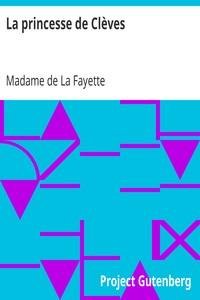Read this ebook for free! No credit card needed, absolutely nothing to pay.
Words: 28601 in 6 pages
This is an ebook sharing website. You can read the uploaded ebooks for free here. No credit cards needed, nothing to pay. If you want to own a digital copy of the ebook, or want to read offline with your favorite ebook-reader, then you can choose to buy and download the ebook.


: Chambers's Edinburgh Journal No. 436 Volume 17 New Series May 8 1852 by Various Chambers Robert Editor Chambers William Editor - Periodicals Chambers's Edinburgh Journal
Editor: Robert Chambers and William Chambers
CHAMBERS' EDINBURGH JOURNAL
CONDUCTED BY WILLIAM AND ROBERT CHAMBERS, EDITORS OF 'CHAMBERS'S INFORMATION FOR THE PEOPLE,' 'CHAMBERS'S EDUCATIONAL COURSE,' &c.
THE MUSICAL SEASON.
'The English are not a musical people.' The dictum long stood unquestioned, and, in general estimation, unquestionable. All the world had agreed upon it. There could be no two opinions: we had no national airs; no national taste; no national appreciation of sweet sounds; musically, we were blocks! At length, however, the creed began to be called in question--were we so very insensible? If so, considering the amount of music actually listened to every year in London and the provinces, we were strangely given to an amusement which yielded us no pleasure; we were continually imposing on ourselves the direst and dreariest of tasks; we were tormenting ourselves with symphonies, and lacerating our patience with sonatas and rondos. What was the motive? Hypocrisy was very generally assigned. We only affected to love music. It was intellectual, spiritual, in all respects creditable to our moral nature, to be able to appreciate Mozart and Beethoven, and so we set up for connoisseurs, and martyrised ourselves that Europe might think us musical. Is there more truth in this theory than the other? Hypocrisy is not generally so lasting as the musical fervour has proved itself to be. A fashion is the affair of a season; a mania goes as it came; but regularly and steadily, for many years back, has musical appreciation been progressing, and as regularly have the opportunities for hearing good music of all kinds been extending.
Another species of classic concert is to be found in the quartett-meetings. These take place in some small concert-room, such as that I have described, or at the houses of the executants; and the audience comprehends a far larger proportion of gentlemen than the last-mentioned entertainments. The performers are four--pretty sure to be gentlemen of the highest professional abilities. The instruments are first and second violin, viola, and violoncello; and three or four quartetts by the great masters, or, very probably, as many compositions, marking the different stages of Beethoven's imagination, are played with the most consummate skill and the tenderest regard for light and shade. People not deep in the sympathies and tastes of the musical world, have no idea how these compositions are loved and studied by the real disciples of Mozart, Beethoven, and Haydn; how particular passages are watched for; and how old gentlemen nod their heads, or shake them at each other, according as they agree or disagree in the manner of the interpretation. Half the audience probably know every bar of the music by heart, and no inconsiderable number could perhaps perform it very decently themselves. It is indeed at these quartett and quintett meetings, that you see genuine specimens of musical knowledge and musical enthusiasm. They take place by half-dozens during the season; and you always find the same class of audience, often the same individuals, regularly ranged before the executants.
A. B. R.
THE TALLOW-TREE OF CHINA.
Many of the important economical productions of China are little known in this country; we are, however, daily gaining additions to our knowledge of them; and within the last few years, much valuable information has been obtained respecting the productive resources of the Eastern Empire. The grass-cloth of China only became known in Europe a few years ago, but it now ranks as one of the important fabrics of British manufacture. Daily discoveries seem to shew that there are Chinese products of equal importance, as yet unknown to us. On the present occasion, we call the attention of our readers to a substance which has been long known, as well as the plant which produces it, but neither of which has hitherto been prominently brought into general notice in Britain. For our information respecting the uses of the tallow-tree, we express our chief obligations to a paper by Dr D. J. Macgowan, published in the Journal of the Agricultural and Horticultural Society of India.
There is a separate process for pressing the oil, which is carried on at the same time. The kernels yield about 30 per cent. of oil, which answers well for lamps. It is also employed for various purposes in the arts, and has a place in the Chinese pharmacopoeia, because of its quality of changing gray hair to black, and other imaginary virtues.
The husks are used to feed the furnaces; the residuary tallow-cakes are also employed for fuel--a small quantity remaining ignited a whole day. The oil-cake forms a valuable manure, and is of course carefully used for this purpose in China, where so very great regard is paid to the collecting of manures. This kind is particularly used for enriching tobacco-fields, its powerful qualities recommending it for such a scourging crop.
With regard to the uses of the vegetable tallow, Dr Macgowan observes: 'Artificial illumination in China is generally procured by vegetable oils, but candles are also employed.... In religious ceremonies, no other material is used. As no one ventures out after dark without a lantern, and as the gods cannot be acceptably worshipped without candles, the quantity consumed is very great. With an unimportant exception, the candles are always made of what I beg to designate as vegetable stearine. When the candles, which are made by dipping, are of the required diameter, they receive a final dip into a mixture of the same material and insect-wax, by which their consistency is preserved in the hottest weather. They are generally coloured red, which is done by throwing a minute quantity of alkanet-root , brought from Shan-tung, into the mixture. Verdigris is sometimes employed to dye them green.' We are not aware that the vegetable tallow has as yet been imported into Britain to any extent.
Free books android app tbrJar TBR JAR Read Free books online gutenberg
More posts by @FreeBooks

: Three Years' War by De Wet Christiaan Rudolf - South African War 1899-1902 Personal narratives; De Wet Christiaan Rudolf 1854-1922; Transvaal (South Africa) History 1880-1910; South Africa Biography Boer War







